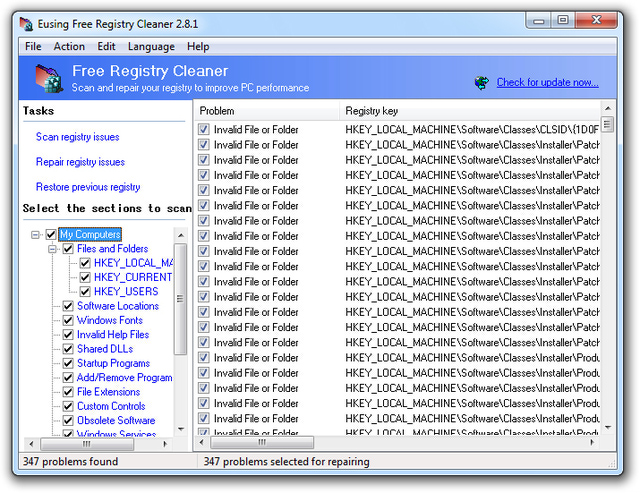You may have heard that it is important to clean the registry of your computer (PC). Or maybe you have already had problems with your computer, and it has been suggested that cleaning your registry can help you solve them. But before you start doing that, you probably need to get an idea of what the registry is!
The registry is essentially a database that controls every aspect of your computer’s operation and is found on all Microsoft Windows® operating systems.
You could say that the computer processor (CPU) is the “brain” of computer hardware, while the registry is the “brain” of the operating system. Now, most people are not familiar with the registry and for good reason – it just runs in the background and never lets you know if everything is working well or if there are problems. The cleaning of the register must be done with care. In fact, attempts to manually clean the registry and modify or delete registry keys can leave a program or even the entire operating system completely corrupted. So, if you’re thinking about manually cleaning your registry, beware!
These days, with the arrival of so many spam, and the fact that poorly written computer software has been launched on the market, and a significant number of malware (malware), spyware and viruses are waiting to corrupt your registry or how to navigate it (at an elementary level) could ruin your computer as easily as any other malware waiting to be typed.
Fortunately, this is not all bad news. Nowadays, there is a very effective software that can help you by cleaning your registry automatically.
The software scans your registry and checks for errors. It can then automatically clean your registry, bringing your computer back to a much more efficient mode of operation.
If you have not thought about cleaning up your registry, this is the time to do it. Keep in mind that your computer registry contains vital information that your computer and all components need to function properly.
It is easy and very inexpensive to fix registry errors – so it should, in my opinion, be your first line of defense against a computer that has become slow and performs poorly.
